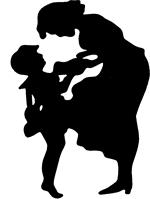问题
问答题
右边是一幅剪纸画。请以其中一个人物的身份写一段文字,表现画面“情深”的意蕴。要求语言鲜明、生动,运用两种以上(含两种)的修辞方法。

答:________________________________________________________
答案
您温暖的眼神像一缕春风,轻轻鼓励着我;您谆谆的教诲像一场细雨,默默滋润着我;您高大的身影像一把大伞,时时保护着我。谢谢您,妈妈。(不设统一答案)
右边是一幅剪纸画。请以其中一个人物的身份写一段文字,表现画面“情深”的意蕴。要求语言鲜明、生动,运用两种以上(含两种)的修辞方法。

答:________________________________________________________
您温暖的眼神像一缕春风,轻轻鼓励着我;您谆谆的教诲像一场细雨,默默滋润着我;您高大的身影像一把大伞,时时保护着我。谢谢您,妈妈。(不设统一答案)